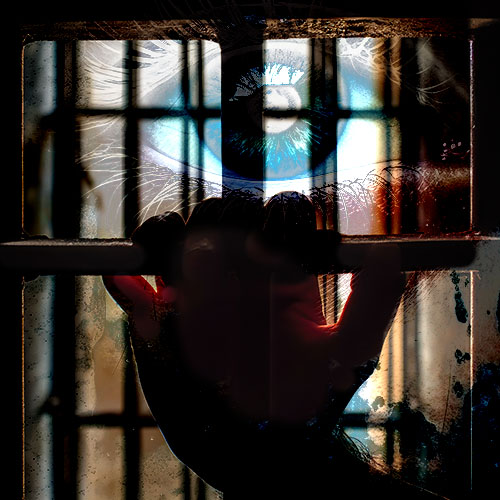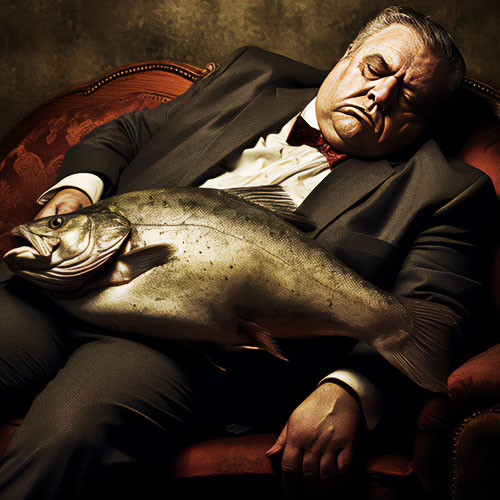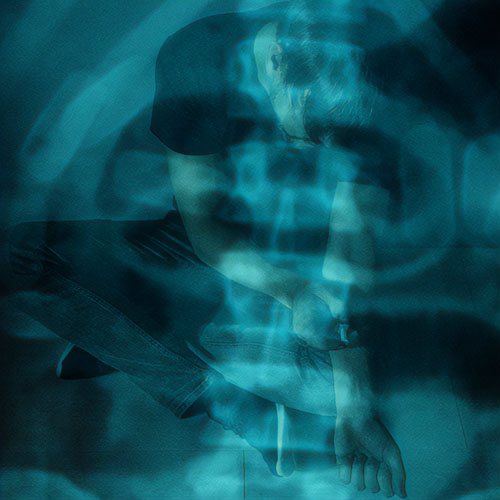The almost unbelievable true story of the brutal murder of Carol Stuart — a crime that Ignited Boston’s worst racial nightmares.
Deadly Greed
No one on Harvest Road could remember the exact date, but it was late on a Friday night, well into the New England summer — August most likely, but cool enough that windows were open for the night. And there was a battle royal raging at the Chuck Stuart house. The Stuarts were not known for having loud fights, but this one was enough to wake the neighborhood.
“You just don’t care!” Carol was heard screaming over tears. “Do you? Do you?”
In reply a window thumped down.
“I am pregnant, and you stay out half the night with your friends? This cannot continue!”
More windows slammed shut, one after the other.
“This cannot continue after the baby is born!”
“Fuck you!”
“Don’t you care?”
A crash was followed by a muffled shout, and then crying that lasted for some time as neighbors went about closing their windows. The next morning some of them noticed that Carol’s face was red and puffy when she came outside to tend her flowers.
Through the rest of the summer, however, Chuck kept up appearances, presiding at several pool parties with his wife, hosting her parents and friends, bragging about the son they now knew she was carrying. “I got her pregnant the first time we tried!” he crowed to male acquaintances. But in Revere, Massachusetts, his closest friends sensed that Chuck had become a very unhappy man. There, several heard him use a new term to describe his wife. “That fat wop,” he called her. In Revere that summer, he swore out Carol’s death warrant.
First he sounded out his brother Michael. At 27, Mike was closest to Chuck in age. One night in late August, Chuck took Mike aside and told him that things weren’t working out between him and Carol. He needed help. He mentioned getting rid of her. Mike brushed this off. “I don’t know exactly what you’re talking about, but I’m not getting involved in any sort of crazy thing you’re talking about,” he said with a nervous laugh.
Chuck didn’t miss a beat. His face broke into that disarming crooked half-grin. “Hey, I’m kidding,” he said in a tone that accused his brother of taking life too seriously. “Come on!”
Mike put the conversation out of his mind. Chuck had been under a lot of pressure and he was always joking around. For a while he thought nothing more of it.
Later came poor Matthew, the brother who tended to ask “How high?” when Chuck said “Jump.” Chuck was more cautious after the other rejection. To Matt he outlined the suggestion of an insurance scam.
At first his kid brother balked. It was worth money, a couple of thousand. But even though he was eager for Chuck’s approval, Matt happened to be having problems of his own at the time, and he wasn’t looking for any more complications. His girlfriend Janet — pretty, smart, self-assured, anxious to find a good husband and increasingly aware that Matt wasn’t the world’s best prospect — had recently broken up with him, making it clear that a guy who drank nights and worked in a paint factory days wasn’t the answer to her dreams any longer. Desperately in love, Matt had quickly resolved to win her back by “going on the wagon” and, he told friends, making every effort to “keep my nose clean.”
The last thing Matt wanted was trouble. But Chuck could be very persuasive. “All right,” Chuck had said, bearing down. “How does $10,000 sound?”
This got Matt’s attention. Ten thousand dollars was about eight months’ take-home pay. To a 23-year-old pining to win back the woman he loved, $10,000 would solve every problem in the world. Ten thousand dollars would last forever!
So at last Matt agreed to go along with Chuck’s plan. It was a little tricky, Chuck explained, and not without an element of danger: On the designated night, he would leave work, carrying what he implied would be the day’s cash receipts from the Back Bay fur store where he was general manager. Later, he would say he hadn’t had time to deposit the money right after work because he and Carol had to rush down to their birthing class at Brigham and Women’s Hospital. Afterward, Chuck explained, he would report that he had been robbed in the car near the hospital. For his $10,000, Matt would have to meet Chuck secretly at the supposed robbery scene and drive away with the cash and Carol’s jewelry. The fur store was insured, Chuck said, aware that his brother had no way of knowing that he had never, in fact, handled the store’s cash receipts. Carol’s jewelry was insured. Everybody made out.
Chuck laughed off any misgivings over such potential glitches as how he would manage to keep this stunt from Carol. Matt couldn’t imagine Carol going along with anything like that. “I’ll explain it all to you later,” Chuck assured him with a dismissive wave. “Everything will be okay.”
After work on Monday night. Carol took the Mass Pike into the city, making good time against the outbound flow of rush-hour traffic. As she edged into the sluggish traffic of the Back Bay, Carol used the car phone to let Chuck know that she was running ten minutes early. Chuck didn’t like even minor deviations in their daily schedule; lately, he had been supervising it with the vigilance of a Swiss stationmaster.
“Stuart’s close friends heard him use a new term to describe his wife. “That fat wop,” he called her. And that summer, he swore out her death warrant.”
Chuck was waiting on the sidewalk under the green awning outside of Kakas Furs on Newbury Street when she pulled up to the curb at 5:50 P.M. He glanced at his watch, tossed a gym bag with his workout clothes into the backseat, and got in, slumping in the passenger’s seat beside his wife. He muttered a greeting, but didn’t lean over to kiss her, and he also didn’t offer to drive, even though it was more apparent each day that getting behind the wheel of a car was an uncomfortable proposition for Carol, who had already, at seven months, put on quite a bit more than the 40-pound overall limit set by her doctor. But she kept her annoyance to herself. Besides, Carol was happy enough to have Chuck on board with the birthing classes. While she was relieved that he seemed to be over his initial snit about her getting pregnant, she had worried that he would balk when she broached the subject of attending childbirth classes. Being part of a group of young, motivated prospective parents earnestly discussing cervical dilation and afterbirth was not Chuck’s idea of a great way to spend an evening. It certainly was not the way things were done in Chuck’s family, where the women tended to talk about such things among themselves while the men rolled their eyes and watched a ball game.
As they drove down Huntington Avenue toward the hospital, Carol looked out the window to where the gray brick sprawl of Northeastern University gave way to the drab tenements of Roxbury, a neighborhood whose population had changed in the decade that spanned World War II from 80 percent white to 80 percent black, just as if someone had flipped a switch. At the intersection where she would turn right to head for the underground parking garage at Brigham and Women’s, Carol could see the two tall steeples of the Mission Church against the twilight. Taking a ticket from the entrance gate machine and driving through to the parking garage, she had no idea that her husband had recently made it a point to acquaint himself with every street in Mission Hill, a neighborhood that most suburbanites, like Carol herself, scarcely knew existed.
That same day, in fact, Chuck and a man at work had been complaining about crime in Boston. Day after day, drugs, gangs, stabbings, drive-by shootings — things were getting out of control. Chuck had had on his desk a copy of the Saturday edition of The Boston Globe and he stabbed his index finger at the headline across the front page: “Police Cite Reign of Violence in Neighborhoods.” The article spoke of “an unprecedented reign of violence” in which “more than 100 people were shot in the inner-city neighborhoods of Boston during a 40-day period that began in early September.” At that rate, the newspaper pointed out with jarring mathematical precision, “ten persons are being shot every four days” in Area B, the Roxbury police district, which included the neighborhood where Chuck and Carol were now spending each Monday night at their birthing class.
“You’re nuts, going down there after dark with Carol,” a coworker told Chuck just before his wife picked him up that night.
“I know what I’m doing,” the father-to-be replied.
The birthing class ended a few minutes early. Walking hand-in-hand, Chuck and Carol took the elevator down to the lower level of the parking garage, where he borrowed her keys and drove up the ramp onto Francis Street. There he turned left, toward Brigham Circle. He could have gone right, toward Brookline Avenue — a more direct route out of the city — but Chuck, who hated getting lost even more than he hated being late, always made it a point to go home the way he came, so there was nothing very unusual in making the left onto Francis Street, nor was there anything extraordinary in his sailing right across Huntington, missing his turn. It was a tricky intersection, with cars converging from three directions. Carol, eager to get home but always trusting Chuck to make the right decision, might have been impatient, at worst, as they crossed onto Tremont Street, which climbs toward the church on the hill.
Downhill from the church, in a large pie-piece-shaped wedge between Tremont, Huntington, and the railroad right-of-way, the squat brick buildings of the Mission Hill housing project lay out of sight of the traffic on the main streets. At Terrace Street, a narrow, dark thoroughfare a block before the lights of the Roxbury Crossing station at Columbus, Chuck casually flipped on his turn signal and made a left.
This turn would definitely have gotten Carol’s attention. The projects loomed ahead, past a block of open fields and dark two-story warehouses.
At the deserted intersection where Terrace meets Station Street, Chuck made a right, then a quick left onto Mindoro Street. Now Carol would have been alarmed. This was obviously not the kind of area to venture into lightly at night.
Lights showed yellow and bright in windows of the three-story blocks of apartments within the project. Chuck stopped the car on the left side of Mindoro Street, where chain-link fences border the desolate parking lots on either side. He parked in a pool of darkness away from the street lamps and the glow of the parking-lot security lights. On the sidewalk, where weeds poked knee-high through the cracks, a soggy pile of junk — used tires, old mattresses chewed by rats, rusted mufflers, even a discarded refrigerator — attested to the seclusion. It was a spot that people had found convenient for covertly discarding the possessions that no longer had a place in their lives. Chuck rolled down the car window. Despite the season and the night’s chill, some city-tough crickets were still chirping in the stubby weeds. From the projects across the lots, a boom box thumped out a pile-driver rhythm — gangster rap — its pitch rising; then falling, and finally fading away with the stride of an unseen stroller. Chuck reached into his gym bag in the backseat and gazed for the last time into the wide brown eyes of his wife. Being that close to her face, he may have kissed her, perhaps for reassurance, maybe as a diversionary tactic. Slowly, he brought the gun up behind her head. From the project, muffled voices, a woman’s sharp laugh, the whump of a screen door banging shut on its creaky spring, drifted through the night, as if over a wide, dark lake.
Two quick gunshots echoed from the curbside on Mindoro Street.
The first, at point-blank range, hit Carol high on her jaw, on the left side of her face. She gasped as the force of the blast slammed her shoulders against the door. Then, with gunpowder searing his nostrils, Chuck carefully positioned the revolver over his right shoulder and deliberately fired a second shot into the roof just above the visor on the driver’s side.
Beside him Carol struggled frantically to suck air into her lungs. She clawed at him in desperation, her brain unable to grasp the horror her eyes had just seen. She struggled, lunging toward him. Furiously, he pushed her back. She was supposed to be dead, goddamn it!
“Chuck reached into his gym bag in the backseat and gazed for the last time into Carol’s wide brown eyes. Slowly, he brought the gun up behind her head.”
Carol tried to fight back to life, struggling to pound Chuck and force him to make it not be true. Sweating, he tried to hold her back, horrified at her hollow gasps. An extra bullet would have solved the problem, but there had only been three stored with the gun he had found in the back of the safe at work. And he needed the remaining bullet. Soon, however, the fight abated in his wife. Breathing shallowly, she slumped into her shoulder belt.
A boom box throbbed through the darkness. Chuck took a deep, shaky breath and gazed down at his wife, who was now still. He checked the time: 20 minutes to nine.
He exhaled, then breathed in deeply again, remembering that Carol’s keys were in the ignition. She was gasping faintly — she wasn’t dead, but he guessed that she wasn’t able to say anything, either. On the empty street, no one had been close enough to come and investigate the gunshots — not that anyone in this neighborhood would be idiotic enough to head toward the crack of a gun. He took Carol’s keys from the ignition and got out of the car, tossing them over the fence into the adjoining field. Then he dug his own keys out of his pocket and got back into the Toyota, where he reached over and took his wife’s hand. It was cold. He twisted off her rings, the marquise ruby with the cluster of tiny diamonds, then the one-and-one-quarter-carat-diamond engagement ring that he had given her on a barely remembered Christmas Eve. When he got them off her fingers, which were bloated from the late stages of pregnancy, he dropped the rings into the blue-and-tan Gucci handbag that lay partly open near the car phone on the console between them.
Though the day had been mild, the night was cold, in the low forties, but Chuck didn’t roll up his window. He needed the brace of the air. After glancing around again to make sure no one was loitering nearby, he steadied himself with a deep breath, then held the revolver gingerly for a second, summoning the courage.
Teeth clenched, barely hearing Carol’s attempts to breathe, he twisted his right hand awkwardly to position the barrel of the gun at his waist, a few inches above his right buttock where — he had made it a point to learn — a bullet, aimed straight out through the side of the belly, would exit without tearing through anything more vital than a layer of fat. It would be just nasty and painful enough, though. And it would take balls to do it.
Chuck closed his eyes and steadied his hand at the necessarily awkward angle. But just as he pulled the trigger, Carol lunged toward him, and the force of her body pushed his elbow forward, causing his hand to jerk out of place just as the gun fired. Instead of exiting neatly from back to front, the bullet tore through his intestines and lodged in his abdomen. Only the fact that the ammunition was so old prevented it from continuing on to sever his spinal cord.
Immediately, he knew that he had shot himself in the wrong place. Overwhelmed with pain, terrified that he was about to die, he realized that the blood pooling against his crotch was his own. Yet he was furious at his wife for causing him to screw it up. For a few excruciating seconds, he lay back with his mouth open, venting the pain, waiting for the cold darkness to smother him.
But he didn’t die. He opened his eyes and took inventory, groping at his belly with his right hand. Though the pain was terrible, he realized that he was not losing consciousness. Taking short, measured gulps, he reviewed his options. Should he just drive back to the hospital a few blocks away to save his own life? No, that would be stupid. She was still alive, after all — and with quite a story to tell if she pulled through. Chuck pulled himself together and started the car.
Slowly, stiff with pain, his eyes scanning the abandoned sidewalks, he drove down Mindoro Street and turned left where it dead-ends at Prentiss. From Prentiss, which borders an abandoned section of the housing project behind a high chain-link fence, Chuck made the first left onto a short, rubble-strewn block. At Station Street he made a right toward the lights of the project and drove slowly to the intersection of Parker Street, where the desolation at last gives way to the life that spills out from the project. At first he didn’t see Matthew’s car parked on the left side about two-thirds of the way up the block, facing oncoming traffic. Chuck was silently cursing his younger brother when his headlights caught Matt’s impassive face in their beam.
Relieved, Chuck slowed to a crawl. Grimacing, he managed to use his shoulder to force Carol as far down on her seat as possible. It was difficult because she was still gasping. Then he drove carefully toward Matthew’s car, as they had planned, drawing up beside the open rear window. Startled by the fear he saw frozen on his brother’s face, Matt was too frightened to do anything other than what he’d been told, which was to look straight ahead, then get away as fast as possible without attracting attention.
Chuck tossed something into the backseat of Matthew’s car. Matthew glanced over into the other car, and through the darkness thought he saw a bulky form, perhaps a suitcase or laundry sack, on the seat beside Chuck.
“Take this to Revere,” Chuck gasped through clenched teeth.
Matthew sensed that something had gone seriously wrong. But he did what Chuck had told him. Without a word, Matt slammed his car into gear and tore off down Station Street, tires squealing. The rendezvous had taken no more than 15 seconds.
Panting, Chuck watched the red tail-lights of Matthew’s car as it sped across the empty field and toward the bright lights of Tremont Street. Then Chuck continued up to the intersection and made a right before pulling over at Parker Street. A couple of hundred feet away, there were people around a bar and an all-night grocery, but the place where he had pulled over still had the cover of darkness. He snapped off the lights and the engine and tried to collect his thoughts. Carol’s breathing grew weaker. Then he started the car again and drove, very slowly, with his car lights out. This was when someone on the street finally noticed him. Yvonne Jenkins, on her way to the store to buy a box of Pampers and a lottery ticket, spotted the white man at the wheel of the Toyota, driving slowly with the lights out. Except for the pained expression she saw on his face, she didn’t think much of it. Just another white dude from the suburbs down in the projects looking for cocaine or a black girl. The only thing that made her remember him at all, besides his expression, was the fact that he was fumbling with a car phone as he drove by.
In 14 years as a civilian dispatcher with the Massachusetts State Police, it was the most harrowing call Gary McLaughlin had ever received. The 35-year-old McLaughlin was into the final hours of his shift at the windowless state-police dispatch center on Commonwealth Avenue in Boston when the call came in on the cellular-phone line.
“State Police, Boston,” McLaughlin said crisply into the phone. He stiffened at what he heard through a burst of static from the other end.
“My wife’s been shot! I’ve been shot!” McLaughlin grabbed a pen and started making notes, though he could see the tape was running. He motioned abruptly to a colleague, dispatcher Danny Grabowski, who picked up the phone at a nearby desk and, after silently monitoring the call, stabbed at a button to feed the conversation into a direct line at Boston City Police head-quarters.
“Where is this, sir?” McLaughlin was asking calmly, pen poised over the pad on his desk.
“I have no idea. I’ve been coming from Tremont… Brigham and Women’s Hospital.”
“Try to give me an indication of where you might be — a cross street or something, anything,” McLaughlin said.
“Someone got into the car at Huntington Avenue. He drove us — he made us go to an abandoned area,” the caller gasped.
“Okay, sir. Can you see out the windows? Can you tell me where you are?”
“No!… I don’t know. An abandoned area, I don’t see any signs. Oh, God…” The caller had a slightly high-pitched voice with just a trace of a Boston accent.
“Has your wife been shot as well?”
“Yes, in the head,” the caller said, and added almost as an afterthought, “I ducked down.”
“Are the people that shot you, are they in the area right now?”
“No, they took off. Or they left. …Should I drive up to the corner of the street?”
“If you can drive without hurting yourself, yes. If you could, just try to give me a cross street.”
“I’ll try to start the car. He took the keys, but I have a spare set. Oh, man… I’m starting the car.”
“What’s your name, sir?”
“Stuart. Chuck Stuart.” Chuck groaned in pain. “Oh, man…”
“Okay, Chuck,” said McLaughlin, writing down the name. “Stay with me, Chuck. Help’s going to be on the way. Bear with me. Is your wife breathing?”
“She’s still gurgling. There’s a busy street up ahead. Oh, shit. My lights are out.” The voice drifted out, then came back. “Oh, man… I can’t see where I am.”
“Hang in with me, Chuck. Just try to give me any indication of where you might be. A hospital, do you see a building?”
“Oh, man, I’m pulling over. I’m going to pass out,” the voice strained.
During the next five minutes, McLaughlin called on everything he knew about handling terrified crime victims. There had been a shooting, obviously a bad one. The victims — a man and a woman — were evidently inside an automobile, lost somewhere in Boston’s worst neighborhood. McLaughlin was afraid the man might pass out before he got the vital information — A cross street! Give me a goddamn cross street! — to pinpoint the location. The Toyota was blue, the victim said.
But then the caller seemed to give up.
“Oh, man, I’m going to pass out,” he gasped. “It hurts, and my wife has stopped gurgling. She’s stopped breathing. I’m blacking out.”
“You can’t black out,” the dispatcher said sharply. “I need you, man. Chuck? Chuckie? Is anybody going by? There’s got to be people out there. Chuck, open the door. Can you open the door? …Try to talk to someone on the street. If there is anyone on the street, stop a passerby in the street so they can tell me where you are.”
“I’m going to try to drive,” Chuck said.
McLaughlin’s tone was gentle now. “Chuck, pull over — someone on the street.”
“I’m looking. I don’t see anybody.” “Chuck, pull over to the side of the street right now,” McLaughlin said. “Open the door and talk to anyone passing by, my friend.”
“There’s no one there. Ah, man.”
“You hang in there,” McLaughlin told the wounded man. “Help is on the way. Chuck, you talk to me now, brother. You talk to me, brother.” McLaughlin was worried that the young man was going into shock. “Have you pulled over?”
“His hand jerked out of place just as the gun fired. The bullet tore through his intestines and lodged in his abdomen. Immediately, he knew that he had shot himself in the wrong place.”
The reply sounded defensive, but McLaughlin didn’t notice that. “There’s no one walking by,” the caller whined.
A few desks away, Grabowski stayed in rapid-fire contact with police head-quarters. There, an officer, who had ordered cars to flood the Mission Hill sector, could be heard telling the cops to turn on their sirens, one by one, and turn them off again. “Bravo Two-One, shut off your siren,” he was saying on police radio. “Bravo One-Four, sound your siren…” The hope was that the sound of a siren might come through the stricken couple’s car phone. Like in the children’s game, dispatchers might be able to then tell a patrol car that it was getting warmer, getting colder, getting warmer again, getting hot-home the cruiser right in there — if they could hear that siren on the phone.
McLaughlin knew there wasn’t much time left before Chuck blacked out. “We’re on the way,” the dispatcher assured him. “But you’ve got to tell me a little better where you are.”
Static crowded the line. Chuck, having wound his way through the lower end of the project, had pulled the car over on St. Alphonsus Street. Carol was now slumped beside him silently.
“Hello, Chuck?” McLaughlin was saying. “Chuck, can you hear me? I lost him! Chuck? Chuckie? Chuck Stuart?”
Just then — the digital counter said it was past 12 minutes into the call — McLaughlin heard a thin, pulsing wail through the phone, well in the background. On the phone, Grabowski broke in. “Wait a minute. Can you hear a siren over there?”
“I can hear a siren!” McLaughlin confirmed. To Chuck, he said, “Can you hear me, buddy? Chuck? Chuck Stuart? Are you with me? I can hear you breathing. Chuck? Pick up the phone. I need a better location to find you.”
On and off, the cruisers signaled on the streets of Mission Hill. Finally, the sound of a police siren came across the car phone loud and clear.
“Chuck? Chuck? Do you hear a siren?”
Chuck muttered into the phone, “I can hear a siren. I hear the police. Right here, there’s Boston police.”
“Put the Boston police officer on the phone, Chuck,” McLaughlin said, collapsing back in his chair. There was commotion on the other end as police warily approached the Toyota. Then they could be heard pounding their way into the car .
“We’ve located him!” a cop shouted into the phone.
At the scene a half-dozen police cruisers and two ambulances had converged on the Toyota almost simultaneously. Three paramedics, Rich Serino, Dan Hickey, and Kevin Shea, jumped out of the first Emergency Medical Service ambulance that arrived. Hickey found the woman slumped on the front seat, bleeding profusely from the head. Shea rushed to the driver’s side, where Serino was already reaching in through the open window to unlock the door. To Shea it looked at first like an extreme case of those domestic-violence disputes that cops and emergency workers see all the time.
“Rich, make sure he’s not sitting on a gun or something,” Shea hissed to his colleague. But he immediately felt guilty for having even thought of it, because both occupants of the car were in very bad shape. The man was conscious, writhing, with his right arm raised over the passenger’s seat where the woman’s bloodied head bent toward his shoulder. Shea cut the front of Chuck’s shirt away and helped Serino ease him onto a stretcher while Hickey did the same with Carol on the other side.
Guessing at how long the woman had been without oxygen, they figured they had less than ten minutes to save the baby.
At this moment, as Chuck lay in an ambulance conscious and lucid while the paramedics labored to save his life, fate played a second trick on him, far more profound than the one that had caused his flailing wife to knock the gun into his gut: This new twist put him on national television. In the ultimate tribute the decade of the eighties could pay to one of its own, Chuck Stuart promptly got his 15 minutes of fame.
Alerted by the drumbeat in the local news media that seemed to indicate a crime wave exploding on Boston’s streets, a television crew from the network program “Rescue 911” happened to be in Boston that night, riding along with an emergency crew, hoping to chance upon some kind of street excitement, when Chuck Stuart made his call for help. The television crew arrived on the scene and found a national icon. With grim wonder, the long lens of the video camera fixed on the pain-wracked young man. In the shadows on the sidewalk, a handful of project residents, drawn by the sirens and the lurid, pulsing red lights, thrilled by the ratifying presence of television, murmured in quiet appreciation.
A cop with a notebook crouched by the wounded man’s head in the back of the ambulance. “You see who did this? One guy? Two guys?”
“A black male,” Chuck mumbled.
“What did he have on for clothing, do you remember?”
Chuck replied with difficulty through the oxygen mask, “Black running suit.”
Did the running suit have stripes? Most did.
Chuck nodded shakily.
“What color?”
“Red.”
With the cop still firing questions, the ambulance lurched off to Boston City Hospital, where a prior arrangement guaranteed the television crew access to the emergency room. The camera stayed with Chuck, whose agony would be excerpted the next evening on newscasts across the nation, as the emergency staff hurried to prepare the critically wounded young man for surgery.
“My wife,” Chuck muttered as he lay naked on the table with the commotion raging around him.
“She went to another hospital,” an intern told him briskly. “We can’t keep an update because we’re taking care of you, okay?”
“Okay,” Chuck replied softly. Chuck sensed now that he would live, but he was still terrified. What if she regained consciousness?
A voice startled him. It belonged to an admissions clerk, addressing him in a businesslike manner. “Charles,” she asked, “is there anyone you want us to call for you? Charles?”
“Yeah?” Chuck said, blinking into the bright lights. He hadn’t anticipated being asked such a simple thing.
“Is there someone you want us to call for you?” the woman repeated.
“No.”
“No?” Shrugging, the woman left.
Several nurses thought his response so odd that they began noticing other things about the handsome young man who had just been savagely attacked on the streets of Boston. For example, the way he kept licking his lips and mouthing words with his eyes closed, as if by rote. One nurse leaned in close enough to hear him repeating in a whispered monotone, “Shot me, shot my wife. Black male. Shot my wife. I ducked. Shot me.”
Carol died that night. Her baby, delivered prematurely by emergency cesarean, died two weeks later. Accompanied by screaming headlines and breathless television reports, the Stuart shootings seemed to underscore the theme of random urban violence that had been sounded for months during a circulation war between Boston’s competing newspapers, the Globe and the Herald.
Furious over the assault on “the Camelot couple,” as the Stuarts were referred to in the media, police poured into the Mission Hill neighborhood in search of the black killer Chuck had described. Hundreds of young black males were stopped, searched, and questioned. Finally, police believed they had found their man: Willie Bennett, a 39-year-old ex-convict who had once shot a cop. While the district attorney’s office built its homicide case, Boston’s media proclaimed Bennett as the primary suspect in the murders of Carol Stuart and her infant son. In December 1989, Chuck Stuart himself picked Bennett out of a police lineup.
As the new year dawned, Bennett’s indictment on two counts of homicide was anticipated within days. But on January 3, suffering from what were described as pangs of conscience, Chuck’s brother Matthew went to authorities and finally told what he knew. Stunned, District Attorney Newman Flanagan immediately switched gears and ordered the arrest of Chuck Stuart.
But the wily Chuck Stuart foiled him. Early on the morning of January 4, after hearing what his brother had done, Chuck drove to the Tobin Bridge over Boston’s Inner Harbor in a new Nissan Maxima he had just purchased with insurance money collected from his wife’s death. Hours later — just three weeks after his 30th birthday — Chuck Stuart was pulled dead from the icy waters.
For months afterward, amid allegations of racism and recklessness directed at both the police and the media, the Boston area seemed consumed by the implications of how readily the hoax had been accepted by white Bostonians. “Boston got hoodwinked,” Mayor Ray Flynn conceded, though he steadfastly defended the actions of police in the case.
But in mid-December 1990, the Massachusetts attorney general issued a scathing investigative report that documented a widespread pattern of “illegal conduct” by Boston police officers in stopping and searching blacks. “Repeatedly, the police appear to have threatened, coerced, and offered favors to obtain testimony that would implicate Willie Bennett,” the report concluded.
Willie Bennett never did get out of jail. In building their case, authorities also implicated Bennett in the unrelated robbery of a Brookline video store; he was convicted of that last October and sentenced to 12 to 25 years in prison.
Meanwhile, it appears likely that the criminal case will never be officially closed. At the district attorney’s stubborn insistence, the grand jury homicide investigation continued to sputter along well into 1991, investigating Matthew Stewart’s role in the case. But Matthew, protected under an eighteenth-century Massachusetts law that says people aren’t legally required to report knowledge of a crime committed by a blood relative, maintained throughout that he had known nothing more about the murders than what he said the day before Chuck’s death.
In an appropriate coda to the 1980s, the case appears to have ended among lawyers, in a fight over money. Early this year, the family of Carol Stuart filed a civil suit against the estate of Chuck Stuart, seeking “in excess of $500,000” for the murders of Carol and her infant son. The suit has since been settled, but the lawyers wouldn’t disclose the terms.
For more painful thoughts about the scope of the Chuck Stuart plot, consider it in terms of its ability to rely on a racist foundation. Think about that as you judge modern political movemments.
























